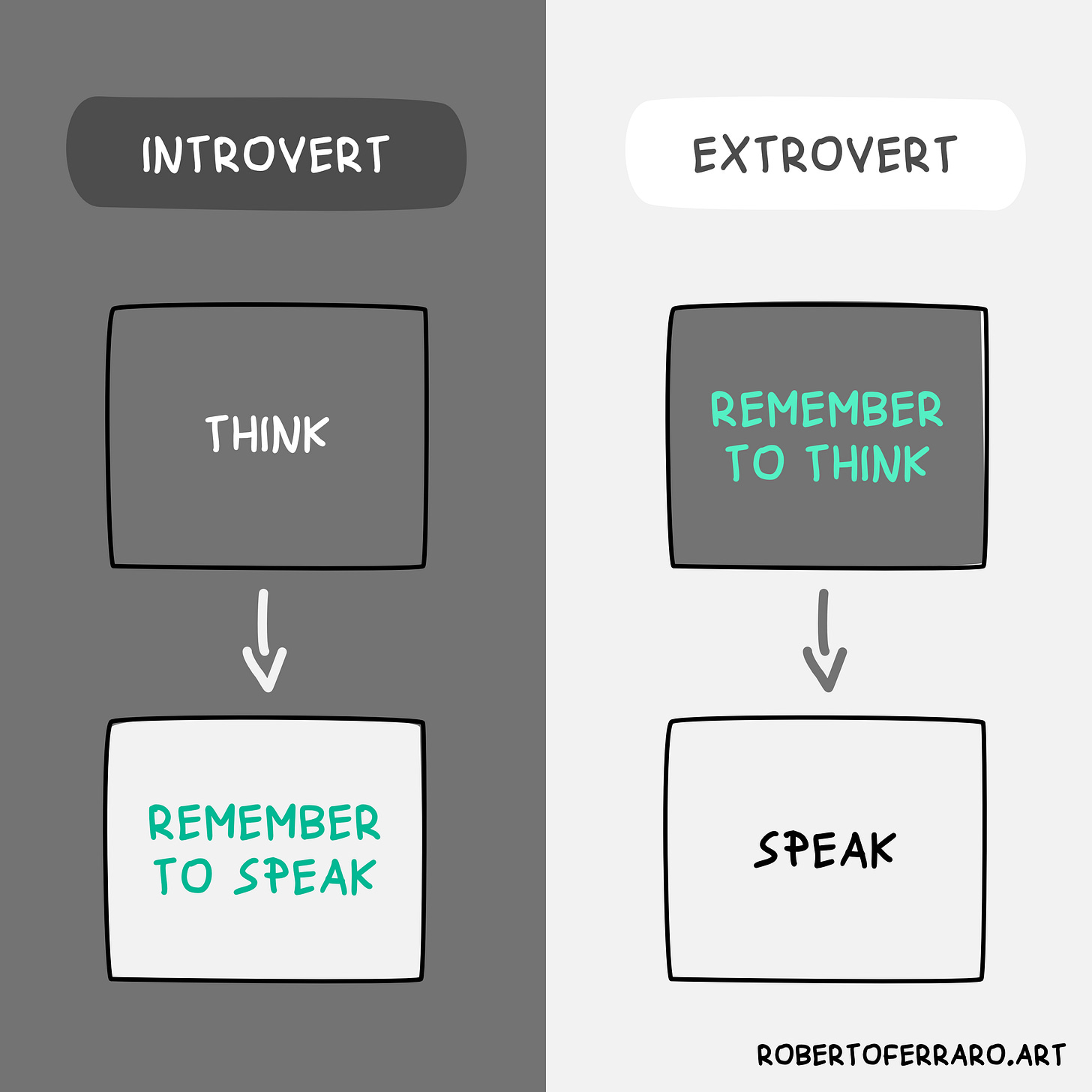Thoughts For The Week - 2025.10.05
Remember to Think or Speak, Imposter Syndrome, The Rise of AI Shopping
1. Remember to Think or Speak
Robert Ferraro has a great post, the visuals say it all…
Most meetings would be more productive and have a better exchange of information if the people who were the quietest got more time to give their thoughts and analysis.
For the extroverts:
Is it necessary to say this right now?
Could I ask a question instead?
Could I let someone else speak?
What information am I missing out on by speaking myself?
For the introverts: Speak up, you likely have extremely valuable opinions that the meeting will benefit from if you share them. Not speaking up is depriving the whole conversation of valuable insights as well as stopping you having a greater impact.
2. Imposter Syndrome
In “Someday soon they’ll realize I’m a dumbass” you can learn more about Imposter Syndrome.
Imposter syndrome rarely strikes mediocre performers.
It’s not the guy half-assing his job who loses sleep at night. It’s the high performers. The ones who overprepare for everything and undersell their own abilities at every turn.
Linking back to point 1 above and last week’s post on the Dunning-Kruger effect these combine together as a dangerous trio. The most knowledgeable team members can sometimes stay the quietest. Intimated by confident assertions from extroverts they hold back, worrying about all the things they don’t know. Meanwhile they do know a great deal and their voices are lost.
Being a competent introvert are prime characteristics for being prone to Imposter Syndrome. It can be difficult to overcome but look at post 1 above, remember to speak up and you’ll be on the way to getting some positive reinforcement.
3. The Rise of AI Shopping
The Rise of AI Shopping highlights the trend that more and more people are relying on the advice of ChatGPT or AI to make purchasing decisions. This has some massive implications and completely changes models:
The old model: intent → ad → link → checkout is being replaced by a single interface that remembers you, advises you, and sells to you.
This changes the landscape significantly:
For Google: AI eats search intent before it ever hits a keyword auction (How Google decides which ads to show based on search terms).
For Amazon: AI cuts to the sale without a marketplace middleman.
For brands: The question shifts from “Where are we placing ads?” to “Are we inside the AI making the recommendation?”
And with this change in behaviour there needs to be a shift in how we optimise building websites.
The question shifts from “Where should we advertise?” to “How do we become the solution AI recommends?” This means rethinking how you describe your services, structure your information, and build relationships with the systems making recommendations.
ie we need to optimise for AI discoverability in the same way we used to optimise for Google keywords and SEO. Have you submitted your products to ChatGPT’s registry?
From user perspective switching from comparison sites to ChatGPT for recommendations is small but it has massive implications for every other company involved in the flow.
Have a great week.



